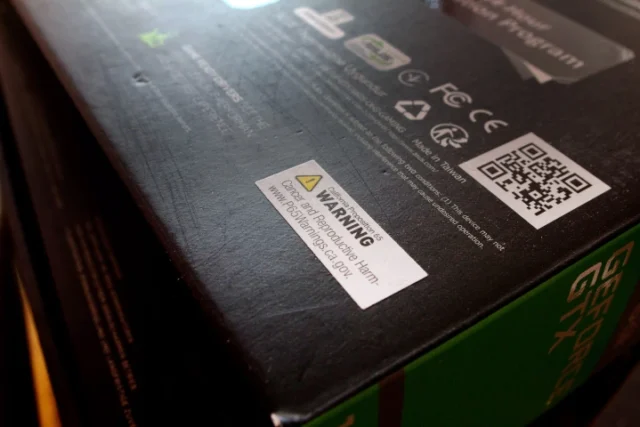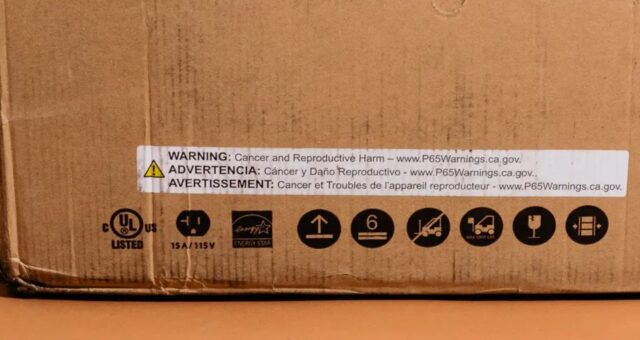You will often find products that contain harmful chemicals and substances and are mostly labelled with a warning sign. The warning for these chemicals must be on products that come into contact with eyes, skin, or breathing. Household products like furniture, electronic equipment, toys, and other home decors that contain chemicals such as phthalates, formaldehyde, etc. must have a Prop 65 warning.
It is a law that requires companies to label their product if it contains any toxic chemicals.
Since the law went into effect, companies without a Prop 65 label on their products will be breaking the law. These chemicals are typically used to make foam in many furniture products. This article illustrates whether or not you should buy furniture with Proposition 65 warning.
What is Proposition 65 warning and why is it important?

Proposition 65 is a California law that requires every company to provide warnings on drinking water and household products that contain chemicals that have been shown to cause cancer and birth defects or reproductive toxicity. If you are a resident of California, you must be aware of this law as it was passed by the State Legislature to protect Californians from exposure to toxic chemicals.
The law requires businesses to warn consumers when they are exposed to high levels of certain chemicals known as carcinogens or reproductive toxins. The law applies to all products sold or distributed in California, including furniture and other home goods. The most common carcinogens are lead, formaldehyde and benzene. Moreover, this law does not apply to environmental toxins.
Companies must also comply with Prop 65 to prevent enforcement actions by providing labels and warning signs. To avoid the risk of enforcement allegations companies must conduct analytical prop 65 testing and obtain certifications to ensure that they are not breaking the law.
This law is a huge benefit for both businesses and consumers. It will not only help consumers to identify the contents of harmful substances but also ensure businesses are not targeted by potential litigation for not complying with Proposition 65.
Is it safe to buy furniture with a Prop 65 warning?

It is not safe to buy household products that are exposed to toxic chemicals. If a product has a Prop 65 warning, it means that the state or country where it was tested found that the product contains substances. However, despite warning labels and signs, people do tend to buy these products as they don’t have other options because almost every commercial product cannot be manufactured without containing at least one of the chemicals listed in Proposition 65 law.
The law is just a statute so businesses can manufacture products legally without the risk of any litigation. Moreover, until these chemicals are not getting into your meals or drinking water, they won’t cause much impact on your health. It is essential to check the certificate of compliance on the product label before purchasing it.
It is best to look for alternatives if a product is found to contain toxic substances, especially if you have kids or pets in your house. These substances might not cause any effect in the short term, but constant exposure can affect your health in the long run causing serious diseases.
Moreover, some products are not tested by the state and therefore do not have Prop 65 warnings. For example, furniture made from wood is not subject to testing by the state because wood is considered “a naturally occurring substance” under this law. Other products may have been tested but still don’t carry a warning on the label because they have been deemed safe by independent laboratories.
How does Proposition 65 benefit the people of California?

1. Informed decisions while buying products
Proposition 65 is a law that is designed to help the people of California and protect them from exposure to potentially harmful chemicals. However, many people are not aware of the law and are unaware of the benefits they are receiving when they buy products. The law requires manufacturers to provide consumers with warnings about chemicals in their products. This will help them to make informed decisions while buying furniture or other products. The law also requires businesses to use safer alternatives to chemicals that may cause cancer or other serious health problems.
2. Reduced exposure to chemicals
Proposition 65 also requires businesses to warn people of any chemicals they might be exposed to while in the state of California. It also requires businesses to take steps to reduce the chemicals they use, so that the chemicals do not exceed the levels the law sets. This helps the people of California by protecting them from harmful chemicals and providing them with the information they need to make safer and healthier choices.
3. Prevents companies from targeted litigations
Proposition 65 allows individuals to sue companies who are in violation of the law. This often leads to targeted litigations that can result in penalties and fines. Businesses must comply and label their products with a warning if it contains any toxic substance listed in Proposition 65. This will allow businesses to avoid enforcement actions, and they can manufacture and distribute products following laws and regulations. Businesses must also try to look for alternatives and use natural substances and materials in the production process. They must ensure that the chemicals used won’t cause any serious health issues.
The Bottom-line
The Proposition 65 law has been designed to protect the people of California against exposure to harmful chemicals. The law requires businesses to provide warnings on their products. Not only companies, but individuals as well must identify themselves with warnings if they contain any of the chemicals or materials that are listed on Proposition 65.
However, it’s not illegal to manufacture such products until there is proper disclosure and labelling to help people identify warnings about the product’s chemical content. You can look for alternatives and buy furniture that is made from a natural substance like wood and doesn’t contain any warnings.









